Contemporary Chamber Music from China

2024.5.10(Friday)19:30
CCOM Recital Hall
Program
Xiaogang YE Datura 10’
Ping JIN Autumn Meditations I 8’
Xinyi WU Falling Pear Blossoms 7’
Paulo Brito Serenade in a Distant Key 10’
------------------------------------------ Intermission -----------------------------------------------
Pengfei YU Lotus Smile 10’
Ping GAO Four Not-Alike 11’
Hang ZOU Tipsy Dancing Devarajas for Eensemble 9’
Zi’ao LI Martial spirit 10’
Chan Wing-wah Phoenix Dance 12’
Composers
According to the repertoire order
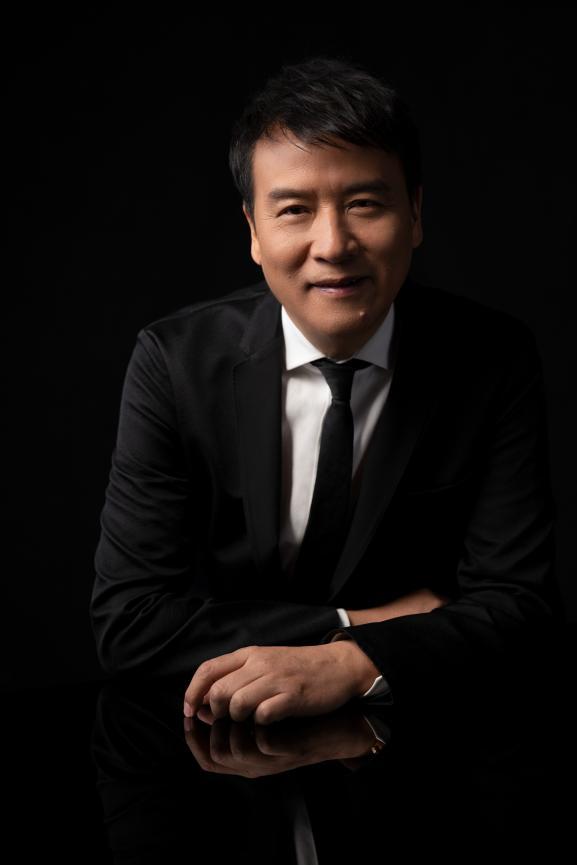
Xiaogang YE
Xiaogang YE is the founding dean of School of Music, The Chinese University of Hong Kong, Shenzhen, a professor of the Central Conservatory of Music, and a music educator. YE was a member of the National Committee of 10th Chinese People’s Political Consultative Conference (CPPCC) and a member of the Standing Committee of the 11th, 12th, and 13th CPPCC. He is currently vice chairman of the China Federation of Literary and Art Circles, chairman of the China Musicians Association, an international honorary member of the American Academy of Arts and Sciences, international chair in composition at the Royal Northern College of Music, distinguished professor of the Shanghai Conservatory of Music and the Xinghai Conservatory of Music in Guangzhou, honorary professor of the Ukrainian National Tchaikovsky Academy of Music, and a consultant to the Tianjin Juilliard School. YE is the founder and artistic director of the Beijing Modern Music Festival, Shenzhen Belt & Road International Music Festival, Tsingtao International Music Festival, Guangdong-Hongkong-Macao Greater Bay Area Music Season, and International Music Competition Harbin. He is one of the members of Talents Project selected by the Publicity Department of the Communist Party of China, and an expert who enjoys a special allowance from the State Council. YE is a representative figure of contemporary Chinese music and one of the most well-known composers in the country.
YE has composed a large number of works in a variety of genres, including symphonic music, chamber music, dance drama and opera, as well as film and TV music. YE’s important symphonic works include Ode to Heroes, Horizon, The Last Paradise, Song of the Earth, Twilight of the Himalayas, Scent of Green Mango, Mount E’mei, Lu Xun (Symphony No.5), The Heroes (Symphony No.7), The Backyard of the Village, Springs in the Forest, Yangzhuoyong Cuo, Shenzhen Story, Macau Bride Suites and Yong Le. The Jade Goddess of Mercy and The Rise of the Great Nations, two of his film scores, were very well received. YE’s piano concerto Starry Sky, written for Lang Lang, was viewed by an audience of around three billion people worldwide when it was performed as part of the opening ceremony concert of the Beijing Olympics in 2008. Since 1995, the world-renowned publisher Schott has published and served as an agent for YE’s works.
YE’s works have been widely performed by orchestras in China and abroad, including the New York Philharmonic, Philadelphia Orchestra, Detroit Symphony Orchestra, Cleveland Orchestra, Royal Philharmonic Orchestra, Royal Scottish National Orchestra, RTÉ National Symphony Orchestra of Ireland, New Zealand Symphony Orchestra, Deutsches Symphonie-Orchester Berlin, Bamberger Symphoniker, Munchner Philharmoniker, Philhamoniker Hamburg, Helsinki Philharmonic Orchestra, Orchestra Del Teatro Alla Scala, Russian National Orchestra, Tokyo Symphony Orchestra, New Japanese Philharmonic, Singapore Symphony Orchestra, Hong Kong Philharmonic Orchestra, Macao Orchestra, China Philharmonic Orchestra, China National Symphony Orchestra, and Shanghai Symphony Orchestra. His works have been presented in the Hong Kong Arts Festival, Macau Arts Festival, Beijing Music Festival, Shanghai Spring International Music Festival, Shanghai New Music Week, Musikfestspiele Saar, Warsaw Autumn International Festival of Contemporary Music, and George Enescu International Festival.
Beginning in 2013, the “China Story” concert series featuring YE’s music has been presented in venues all over the world, including Avery Fisher Hall at Lincoln Center (New York), and concert halls in Berlin, Saarbrücken, Münich, Edinburgh, Glasgow, Moscow, Kolkata, San Jose (Costa Rica), Lima (Peru), Nates (France), Dublin, and Bydgoszcz (Poland). The events have constituted a significant contribution to the propagation of Chinese contemporary music on the international stage, receiving wide acclaim and gaining great success.
YE has been the recipient of many prestigious honors in China and abroad, including a Five Distinguished Project Award by the Publicity Department of the Communist Party of China, a Wenhua Music Award by the China Ministry of Culture, a first prize of the Golden Bell Award by the China Musicians Association, a 2012 Guggenheim Fellowship Award, and a 2013 China Arts Award, among others. YE has composed music for more than 30 important Chinese movies and TV series, and won “The Best Score Award” five times for his efforts in this area.
As a member of the Standing Committee of the 11th, 12th, and 13th CPPCC, YE has been enthusiastic in the promotion of music and of national arts education. He has made strong appeals to increase government funding for the arts and has proposed motions concerning cross-cultural exchanges and the protection of musical copyright. At many national meetings, YE has called relentlessly for increasing public attention to the protection of intellectual property, and for the promotion of cultural exchanges with the rest of the world. There has been dramatic progress in both of these areas as a result of his vigorous efforts.
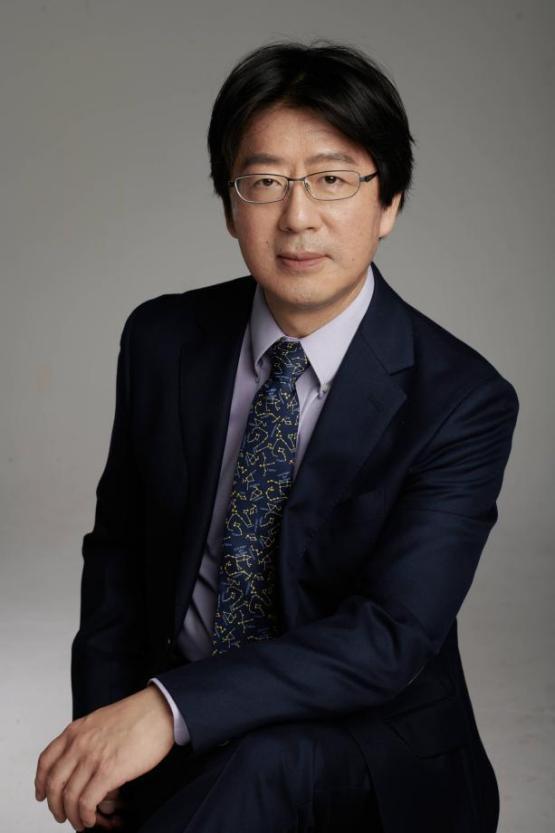
Prof. Ping JIN
Prof. Ping JIN is currently Associate Dean (Research), Academic Leader and Head of Composition & Theory at the School of Music, The Chinese University of Hong Kong, Shenzhen. He was a professor at the State University of New York before he returned to China in 2008. Since then, he was a professor at the Central Conservatory of Music and served as head of the composition department at the China Conservatory of Music.
Ping JIN’s music has been commissioned and performed by the Cincinnati Symphony Orchestra, China National Symphony Orchestra, China National Centre for the Performing Arts Orchestra, Orchestra Academia China, EarPlay, Bang On A Can, and Newstead Trio. He won the first prize at the national art song composition contest in China and Golden Bell Prize for his Chinese orchestra work. His sextet received an award from the New York State Council on the Arts.
Ping JIN served as the president of the Society for New Music, and the guest professor of Shanghai Conservatory of Music. He is currently a research fellow at the Central Conservatory of Music, and the Board Member of the International Computer Music Association (ICMA).
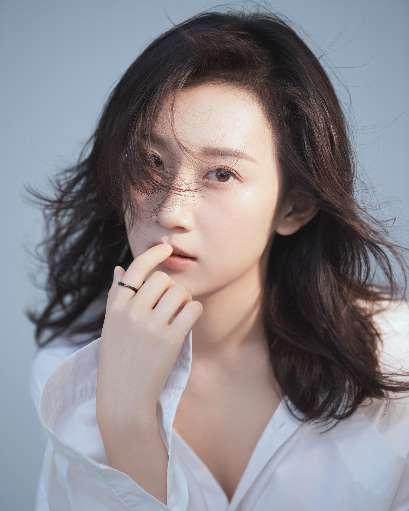
Xinyi WU
Xinyi WU is a third year PhD student in the Department of Composition of the Central Conservatory of Music. She has studied with Prof. Zhu Lin, Prof. Zhou Juan, Prof. Li Binyang and Prof. Jia Guoping. She is now studying with Professor Xiaogang YE, who is currently vice chairman of the China Federation of Literary and Art Circles, chairman of the China Musicians Association, professor of CCOM, and the founding dean of the School of Music at the Chinese University of Hong Kong (Shenzhen).
She obtained her master’s degree from the Composition Department of Lübeck Music University (Musik Hochschle Lübeck) in Germany in 2019. During studying abroad, she studying with Prof. Dieter Mack and several commissioned works were successfully performed in Germany and received unanimous praise.
In 2023, her paper “Dual-line Development of Pitch Organization and Duality of Structure: An Analysis of Twilight of the Himalayas by YE Xiaogang” was selected into “CONTRASTS AND CONVERGENCE IN CHINESE MUSIC: 3rd International Conference on Contemporary Studies of Chinese Music in a Global Perspective” and made a speech.In the same year, she participated in the academic seminar on the construction of Opera discipline in Zhejiang Conservatory of Music.The work Ultramarine was selected for the “1st Guangming Chamber Music Festival”.
She has composed music for many major national foreign affairs events.
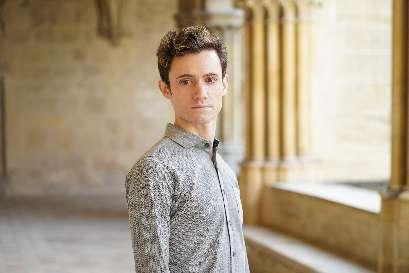
Paulo Brito
First-prize winner of the Toru Takemitsu Composition Award, Paulo Brito has been featured as a composer and pianist at international venues including the Royaumont Festival, Weiwuying New Music Festival, Lisbon ESML Composition Week, Shanghai Conservatory New Music Week, and the University of Toronto New Music Festival. His music has been performed by ensembles including Linea, Ars Nova, Recherche, Avanti Chamber Orchestra, and the Tokyo Philharmonic Orchestra. Having recently received his doctorate in composition from the University of Toronto, he holds MA and BA degrees from the University of Chicago and Columbia University, respectively. Currently teaching at The Chinese University of Hong Kong-Shenzhen, he has published research in the academic journals Asian Music, The Russian Review, Renditions, and Folklore.
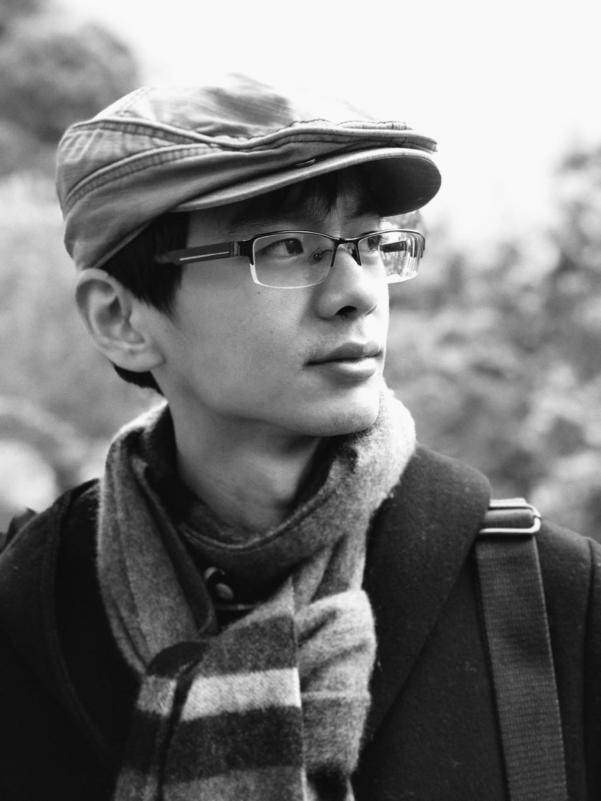
YU Pengfei
YU Pengfei currently serving as a lecturer at the School of Music, The Chinese University of Hong Kong, Shenzhen, graduated from the Composition Department of the Central Conservatory of Music for both his bachelor’s and master's degrees. His musical style is deeply rooted in the collision of tradition and contemporary ideas, with a particular emphasis on individual temperament and musical expression within the context of contemporary China.
In recent years, YU Pengfei's works have garnered wide acceptance and acclaim, leading to commissions from music festivals and renowned performing groups both domestically and internationally. Some of his works have been recorded and released by well-known publishers in China and abroad. For example, his piano work The Wilderness of Hometown was published and distributed by NAXOS. His chamber music piece Moonlit Silversmith was published and distributed by Universal Music (supported by the "Four Batches of Talents Plan" of the Publicity Department of the Communist Party of China and the 211 Project of the Central Conservatory of Music), whose sheet music was published by People's Music Publishing House.
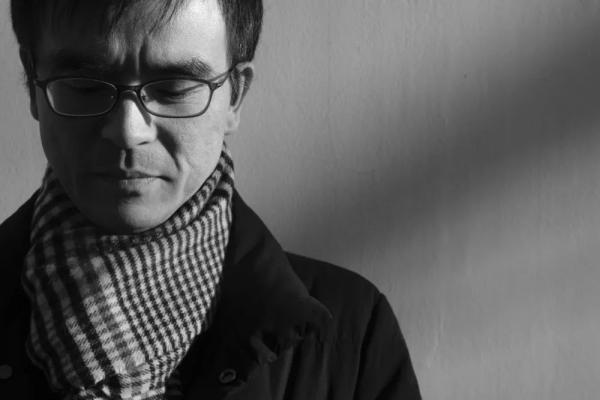
Gao Ping
Gao Ping, a composer-pianist, born in Chengdu, Sichuan province of China. He studied in the USA in the 1990’s.
In demand as a composer, he has received commissions and performances from musicians around the world. In recent years, his works such as“ Four Not-Alike”--concerto for multifunction pianist and Chamber Orchestra, pointed at new direction of Gao’s approach combining Western and Chinese instruments.
Gao Ping’s two albums, Story Teller—Gao Ping Chamber Music and Piano Quitet “Mei, Lan, Zhu, Ju”, released on Naxos label were critically acclaimed. His music also appears on Yamaha, Atoll, Vermes, and Rattles record labels.
His recent albums, Outside the Window (piano music) and Pure Wind (Music for Chinese ensemble) were released by China Records Corp. and People’s Music in 2017. Other works such as Piano Concerto No.1 was published on Shanghai Music Publisher. Since 2020, the Xi Nan Normal University Press published a series of Gao’s collections of music including piano albums Outside the Window (2020), Wanderings (2022) , and the song cycle Melodies Abandoned (2020).
In 2016, Gao Ping was commissioned by artist Mr. Chen Danqing, the head of the Mu Xin Museum, to compile the music manuscripts by the late artist Mu Xin and to create new compositions with the material. He premiered these compositions in a concert at the Wuzhen Theatre which received much critical response from the press as well as the general audience.
Gao is currently a Professor in Composition at the Chinese University of Hong Kong-Shenzhen School of Music. He previously taught at the Conservatory of Music-Capital Normal University in Beijing and the University of Canterbury in New Zealand. He was appointed as the 2018 Composer-in-residence of Orchestra Wellington (New Zealand).
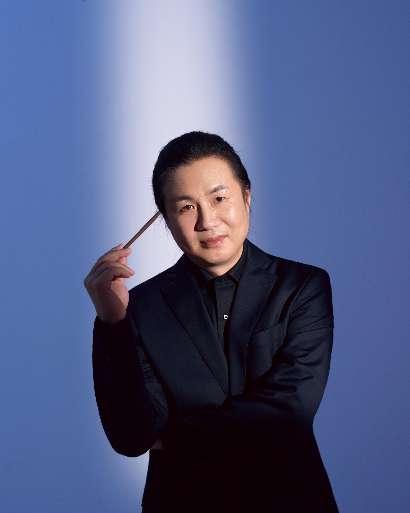
ZOU Hang
ZOU Hang is an Associate Professor of the Central Conservatory of Music in China, he is also council member of China Musicians Association, council member of Composition Committee of China Nationalities Orchestra Society.
ZOU Hang's works obtained many honors, including the 97’ International Gaudeamus Prize, the Best Composer Award in the 5th “China Dance Lotus Award” competition, the 10th and 12th Anniversary of the “the Five one project Award” of the Central Propaganda Department in China, the 1st Chinese music “Golden Bell Award”, the first prize in the 1st Guangdong Province Arts Festival, the Excellent Work Award in the 6th Taiwan Province Symphony Orchestra Competition. His works have also been selected for the "Symphony of the Times – the Support Project of Chinese Symphonic Music Composition" by the Ministry of Culture and Tourism of People’s Republic of China, “the Review of Chinese symphonic works” by the China Musicians Association and the China Symphony Development Foundation, “the Youth Literary and Art Support Project” by the China Federation of Literary and Art Circ, and China National Arts Fund, etc.
His works have been performed by Yoyo Ma, Lang Lang and other world-class master, and was performed in more than 30 countries, including Europe, North America, South America, Asia and Oceania, including: New Zealand National Art Festival, Australia Auckland and Brisbane Music Festival, Beijing Modern Music Festival, Tsingtao International Music Festival and other international music festivals; as well as Berliner Philharmoniker Concert Hall in Germany, Kennedy Art Center Opera House in USA, Jazz at Lincoln Center, The Frederick P. Rose Hall in USA,Golden Concert Hall in Austria, UNESCO hall in Paris, France, Jordan Hall in New England Conservatory in USA, National Centre for the Performance Arts Concert Hall of China and other famous music venues.
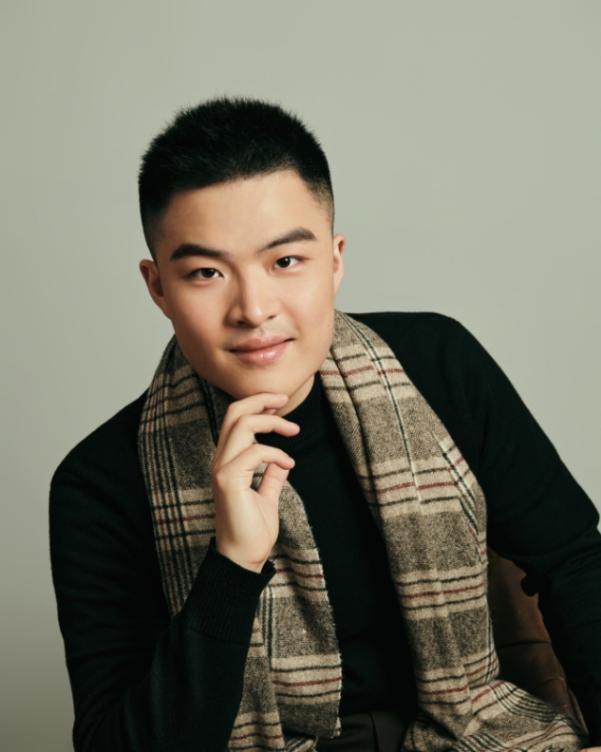
LI Ziao
Young composer LI Ziao was born in Changsha, Hunan. He was admitted to the Composition Department of the Central Conservatory of Music with the highest score and studied with Professor Gong Xiaoting. He is now studying with Professor Xiaogang Ye, a professor at the Central Conservatory of Music, chairman of the China Musicians Association, and the founding dean of the School of Music at the Chinese University of Hong Kong (Shenzhen). He was recommended to CCOM's Graduate School this year.
Li Ziao has won numerous awards in domestic and international composition competitions, including first prize in the "G, Lachetti International Composition Competition in Italy, first prize in the Composer Advanced Group of the Rocky Mountain Music Competition in Canada, first prize in the Royal Voice Composition Competition in Canada, first prize in the "International Composition Championship" of the Schubert Music Academy, and second prize in the "European Composer Award" Composition Competition, to name a few. His works have been selected for the "Praising the New Era" Excellent Symphonic Works Exhibition of the Chinese Musicians Association and premiered at the National Center for the Performing Arts.
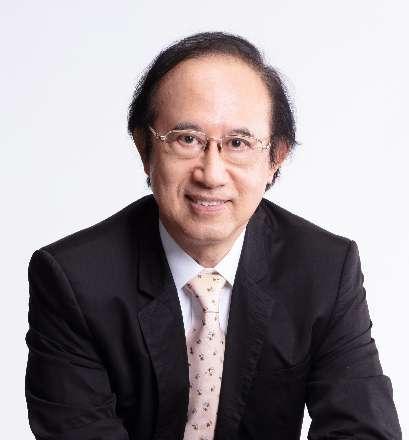
CHAN Wing Wah
CHAN Wing Wah, JP, is currently serving as Associate Dean of the School of Music, The Chinese University of Hong Kong, Shenzhen. Prof. CHAN was the first Resident Composer of the Hong Kong Philharmonic Orchestra and has written 10 symphonies plus over 200 musical works including songs for children and adults, chamber and orchestral music with Chinese, Western, Japanese and Korean instruments. Seven of his ten Symphonies were released on CD by Hugo Productions performed by orchestras in Hong Kong (China) and Russia. The music scores of Symphony No. 5 ‘The Three Kingdoms’ & No. 6 ‘Reunification’ were published by People’s Music Publishing House.
His music has received numerous awards including First Prize in the International Double Reed Society Composition Contest, USA; the Yoshiro Irino Memorial Award from the Asian Composers League, and several local awards. His works had been performed in over 30 countries and his biography is included in the New Grove Dictionary of Music & Musicians Online and Oxford Music Online. The Government of Hong Kong SAR appointed him Justice of the Peace in 2000.
Prof. CHAN became the Music Director of the Hong Kong Oratorio Society (HKOS) (established in 1956) since 1995 and has been leading this choir with regular concerts and occasional concert tours. He has conducted orchestras in Shanghai, Beijing, Shenzhen, Macao (China) and Gwangju (Korea) in addition to the Hong Kong Philharmonic Orchestra, Hong Kong Sinfonietta, Hong Kong Chinese Orchestra and Hong Kong Strings. In 2017, he conducted the HKOS and a string orchestra in San Francisco to perform his Symphony No.8 ‘This Boundless Land’ for organ, choir and orchestra in the Herbst Theatre in San Francisco and the Walt Disney Concert Hall in Los Angeles. In 2019, he brought the HKOS together with the Vancouver Oratorio Society to Toronto for the premiere of his Symphony No.9 ‘Universal Harmony’. His Symphony No.10 ‘Spring and Autumn’ for Chinese Orchestra was recently premiered in two concerts featuring his music by the Hong Kong Chinese Orchestra in July, 2022. He was invited to become a Council member of the China Musicians Association in 2009.
Introduction To The Works
Xiaogang YE Datura
Datura was commissioned by Accessible Contemporary Music and was written in a unique way. I composed the piece in installments over the summer of 2006 and emailed them to Seth Boustead who forwarded them on to the ensemble. In this unique way of working I was able to have time between each installment to think about what would come next and to get feedback from the performers about the music. This is a very new and different way for a composer to work. Usually I write the piece in solitude and then hand it to the performers but writing in installments allows more communication between the performers and the composer and allows the audience to hear the piece as its created.
Datura is another in series of pieces composer written about Asian plants and flowers. Datura is a very common houseplant in south China and very beautiful but it can also be used as a hallucinogen, usually with unpleasant results. In this piece composer juxtaposed the outer beauty of the plant with the intense inner would it can create by using alternately tranquil and intense musical passages.
Ping JIN Autumn Meditations I
Du Fu (712-770) is regarded as the greatest poet of China. He wrote Autumn Meditations, a cycle of eight poems in septasyllabic regulated verse, when he was living in Kuizhou, Sichuan Province, in the year of 766. In the poems, Du Fu expressed his longing for the city of Chang 'an, the capital of the Tang Dynasty where his home was, and his feelings about the country, which was ravaged by war during that time. The Autumn Meditations marked Du Fu’s highest creative achievement in poetry and demonstrated his late style which shows multi-leveled linkages among the lexical, grammatical, and formal features with semantic content of the poems. My work here is inspired by Du Fu’s Autumn Meditations. In this piece, I hope to closely express the content of Du Fu's poem. I also want to rethink and examine the roles of symmetry, overlap, contrast, stress, and other formal features in music as Du Fu did in his poems and see how they are interrelated among different levels.
Autumn Meditations Poem 1
Gems of dew wilt and wound the maple trees in the wood:
From Wu mountains, from Wu gorges, the air blows desolate;
The waves between the riverbanks merge in the seething sky,
Clouds in the wind above the passes touch their shadows on the ground.
Clustered chrysanthemums have twice opened tears of other days:
The forlorn boat, once and for all, tethers my homeward thoughts.
In the houses quilted clothes speed scissors and ruler.
The washing blocks pound, faster each evening in Pai Ti hight on the hill.
Xinyi WU Falling Pear Blossoms
The pear blossom symbolizes purity.
The composer intends to spread the qualities of the Pipa, a traditional Chinese instrument, and its unique instrumental character to other Western instruments, so that all of them become one Pipa, thus unifying the acoustic form and musical character.
Paulo Brito Serenade in a Distant Key
The piece is conceived around the idea of elegy in music, as embodied by Gustav Mahler and the imagined, poetically distant China given such singular expression in his Song of the Earth. As the lone Chinese instrument in the piece, the pipa plays a critical role, standing in as the “genuine item” for the mandolin Mahler used so characteristically in his vocal symphony. The piece’s title—Portuguese for “farewell”—alludes equally to Mahler and to personal experiences of parting and loss, during a year of wandering before landing in the real China of the here and now.
Pengfei YU Lotus Smile
“Lotus Smile” refers to the smile of figures in Buddhist imagery in harmony with natural scenery. It embodies the compassion of Bodhisattvas and reflects the joys and sorrows of people over the centuries. In the history of Buddhist art in China, there are statues with robust smiles like those of the Gandhara Buddhas, elegant smiles like those in the Wei and Jin dynasties, and graceful smiles from the Tang dynasty. The creators of these artistic works may not necessarily deeply understand the doctrines; instead, they blend worldly beauty with the spiritual realm. These smiles bridge the gap between the present and the afterlife, reflecting the transcendence of the spiritual world through the beauty of the physical world.
Ping GAO Four Not-Alike
“Four Not-Alike”(Si Bu Xiang in Chinese) is the vernacular name for Elaphurus Davidianus or the David’s Deer. This animal is originally from China and is called Mi Lu in Chinese. Si Bu Xiang refers to the fact that David’s Deer looks, in part, like four other animals which are deer, cow, horse, and camel, yet it cannot be comfortably categorized as one of the four species. Si Bu Xiang as an expression has a connotation of impurity and even suggests bastardization, making it a disdainful, even derogatory term of reference. The expression is now largely used independently of its original reference to the animal.
I was at first ignorant of the origin of Si Bu Xiang when I choose it for the title of this piece. However, I feel that it describes very well the countenance of the composition. This is a piece which is truly in its nature a “Four Not-Alike”. It is neither European/Western, nor Chinese/Asian. It is neither entirely folkloric, nor classical art music. The soloist plays the piano quite unlike a conventional pianist, and sings in a manner unlike a usual singer. He gets into the piano touching this and hitting that, accompanied with shouting and whistling. It does seem slightly inappropriate and impure. Si Bu Xiang seems a fitting title.
Having discovered the origin of Si Bu Xiang it also became clear that David’s Deer is actually an extremely rare animal. It was once near complete extinction. It now receives far more attention than any of the four animals it resembles. This is, in a way, almost a restoration of its former, unjustly low reputation. As an old Chinese idiom says “Value is measured by rarity”. So, my self-deprecating title suddenly takes on an unintended meaning to become almost its opposite - which is self-boasting. Isn’t that even more inappropriate?
Hang ZOU Tipsy Dancing Devarajas for Eensemble
“Devarajas”-The patron saint of Tibetan Buddhism, it’s a serious deterrent to the hideous face of the devil. Just imagine, the myth image was by humans to shape, in such a solemn body of God, if inherent in human nature contains the emotion and color, the integration of man and God, I think this when I being tipsy man,Maybe it has a different style and humor. Inspiration and material of the music are from Tibet’s traditional folk music.
Inspiration and material of the music are from Tibet’s traditional folk music. The Work has been arranged different versions, and it has been performed in U.S.A, Australia, New Zealand, Poland, Lithuania, Latvia, Estonia, Hungary, Russia, Mexico, Cuba, Ukraine, Belarus, India and other countries.
This was the 9th version of the work for this performance.
Zi’ao LI Martial spirit
The Chinese character "武(force)" consists of "止(stop)" and "戈 (dagger)"This illustrates an important principle in the traditional Chinese martial spirit: Strength does not lie in the display of force, but in the steadfast longing for peace. The spirit of martial arts is not only a pursuit of strength, but also a persistence in peace. It emphasizes achieving inner strength and external peace through self-cultivation and moral enhancement.
Therefore, the composer hope to combine the power of traditional martial arts culture with the rhyme of ancient poetry praising warriors, and integrate it into contemporary music structures, criticizing the abuse of force, condemning the pain and destruction caused by war, and expressing his longing for peace.
Chan Wing-wah Phoenix Dance
The phoenix in the Chinese tradition differs slightly from those in ancient Greece and Egypt. The image of the Chinese phoenix as an ancient bird already appeared in the jade figurines and pottery in neolithic China around 5,000 BC. It continued to be featured in the Bronze Age on art objects until the present day. Phoenix is said to appear only in places that are blessed with peace and happiness. Phoenix also holds very high position in Japanese and Korean culture, e.g. the President seal of South Korea is a twin phoenix emblem. The harp was originated from the Near East dated back to around 3,500 BC. It was then spread around the world with minor transformation. The Chinese prototype Konghou was already a popular instrument in the Eastern Han Dynasty 25-220 AD. The opening section of this piece tells that the phoenix quietly appears and stretches her limbs and feathers in leisure. She then starts an elegant dance in a unique rhythm. After a brief rest, she turns to a more vibrant and energetic dance bringing in excitement and ending the dance in ecstasy. Phoenix Dance was written specially for Teresa Suen-Campbell and the Kindred Spirits Orchestra of Canada in 2017 and was premiered in March, 2018 in Toronto.
Conductor
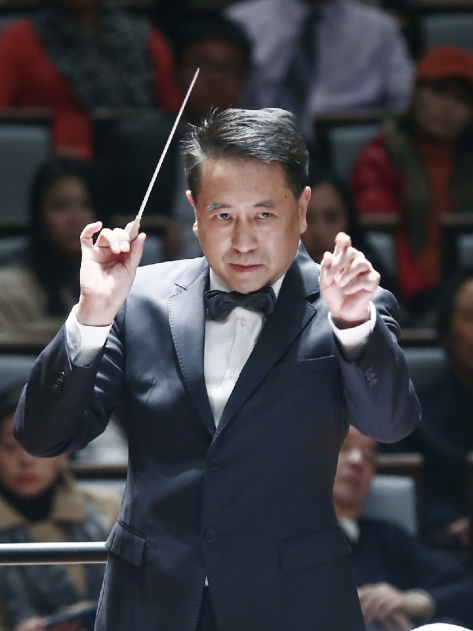
Yong-yan HU
Yong-yan HU is a Professor, Academic Leader and Head of Conducting, the Director of Orchestra Office at the School of Music, The Chinese University of Hong Kong, Shenzhen. Born into a musical family in Shanghai, HU Yongyan studied at the Central Conservatory of Music under the tutelage of Zheng Xiaoying. After graduating from the Conservatory in 1983, he went on to Yale University and the Juilliard School to study under Otto-Werner Mueller, graduating in 1989.
His conducting career has spanned the world and included collaborations with world-class orchestras and artists such as Yo-Yo Ma and Lang Lang; he has also earned a Golden Record Award for his conducting on musical recordings. He has appeared as a guest conductor for major orchestras in Europe, the United States and Asia, including the Orchestre National de France, London's Royal Philharmonic, German orchestras and opera houses including the Theatre Lübeck, Opernhaus Kiel and the Hamburg Symphony Orchestra. Yong-yan HU served as Music Director and Conductor of several orchestras in the US, and later on returned to his hometown Shanghai to lead the Shanghai Philharmonic Orchestra as Music Director and Conductor.
In 2004, he founded an orchestra academy at the Central Conservatory of Music, where he served as Artistic Director and dean for many years. He also led the North German Philharmonic Orchestra as Principal Guest Conductor and taught at Yale University as a Visiting Professor. In 2016, he was awarded the Yale Presidential Award as one of 13 Distinguished Visiting Professors. He has assumed professorship as the artistic director of the Orchestra Academy at Zhejiang Conservatory of Music (2020-2022).
Conductor Yongyan Hu |
Mezzo Soprano Huiling Zhu |
Pipa Yang Jiang |
Shucong He |
Stanislav Pronin |
Viola Ao Peng |
Cello |
Yiqiu Chen |
Double Bass Xi Liu |
Flute Long Yuan |
Oboe Sai Kai |
Clarinet Cheng Yi |
Bassoon Benjamin Moermond |
Horn Tianxia Wu |
Robert Fant |
Trumpet Chen Liu |
Trombone Zikuan Cheng |
Tuba He Liu |
Piano Yue Zhang |
Yingjia Xue |
Zilan Huang |
Harp Li-ya Huang |
Percussion Le Yu |
Chun Zhan |

The School of Music, The Chinese University of Hong Kong, Shenzhen, is one of the “Ten Major Cultural Facilities in the New Era” planned and built by the Shenzhen Municipal Government. The school aims to become an international, innovative, and world-leading higher education institution for music. With the goal of cultivating outstanding talents equipped with both academic and performance abilities, the school establishes innovative training modes for musical talents and an international training system that offers bachelor’s, master’s, and doctoral degrees. With comprehensive and scientific programs, the school strives to provide corresponding guidance for every student who desires to further their studies in art. The school is recruiting globally and is led by world-renowned musicians and music educators. On April 29, 2021, CUHK-Shenzhen announced the appointment of Professor Xiaogang YE, a famous composer and chairman of the China Musicians Association, as the founding dean of the School of Music.
Currently, the School of Music offers undergraduate programs in music performance, musicology, music composition and theory, and postgraduate program in music performance, music composition and theory. In the future, the School of Music plans to offer undergraduate programs in dance performance and postgraduate programs in art management, dance performance and more. Classes are taught in both Chinese and English, and other languages such as Italian and German. The School of Music will take on the global environment, the tradition of the college system, the holistic education and the student-oriented education philosophy of the University and broaden the global perspective of students through a modern university management system and internationally recognized academic standards and teaching models.
The School of Music is located in the International University Park in Longgang District, Shenzhen, adjacent to the current campus of CUHK-Shenzhen. The total site area is about 73,800 square meters, the total construction area is about 129,700 square meters, and the total investment is about 1.59 billion yuan. The campus is currently under construction as scheduled, which is expected to be delivered by December, 2024 and to be put into operation in 2025.
The School of Music will be based in Shenzhen, in line with the demand for outstanding musical talents in the Guangdong-Hong Kong-Macao Greater Bay Area, drawing on the successful experience of the CUHK-Shenzhen, and the advanced educational philosophy of top universities from home and abroad. Experts and professors from home and abroad have provided guidance and assistance to its planning and development. The School will greatly contribute to the development of higher education in the field of music, promote resource sharing and talent exchange in the field of art and culture of the Greater Bay Area, and cultivate world-class musical talents that integrate Chinese and Western musical cultures.
